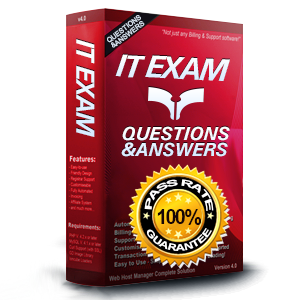
CLTD Exam Questions & Answers
Exam Code: CLTD
Exam Name: Certified in Logistics, Transportation and Distribution
Updated: Nov 25, 2024
Q&As: 255
At Passcerty.com, we pride ourselves on the comprehensive nature of our CLTD exam dumps, designed meticulously to encompass all key topics and nuances you might encounter during the real examination. Regular updates are a cornerstone of our service, ensuring that our dedicated users always have their hands on the most recent and relevant Q&A dumps. Behind every meticulously curated question and answer lies the hard work of our seasoned team of experts, who bring years of experience and knowledge into crafting these premium materials. And while we are invested in offering top-notch content, we also believe in empowering our community. As a token of our commitment to your success, we're delighted to offer a substantial portion of our resources for free practice. We invite you to make the most of the following content, and wish you every success in your endeavors.

Download Free APICS CLTD Demo
Experience Passcerty.com exam material in PDF version.
Simply submit your e-mail address below to get started with our PDF real exam demo of your APICS CLTD exam.
![]() Instant download
Instant download
![]() Latest update demo according to real exam
Latest update demo according to real exam
* Our demo shows only a few questions from your selected exam for evaluating purposes
Free APICS CLTD Dumps
Practice These Free Questions and Answers to Pass the Logistics - Transportation and Distribution Exam
A restriction that can be classified as a non-tariff barrier would be a(n):
A. registration license.
B. import quota.
C. cargo preference.
D. manufacturing location.
A company is trying to ship a product which weighs 150 pounds with a density of 15.7 pounds per cubic foot. Using the carriers rate schedule below, what is the shipping cost?

A. $8
B. $10
C. $12
D. $18
Which of the following modes of transportation primarily uses the term double-stacking?
A. Rail
B. Truck
C. Water
D. Air
Which of the following entities can act as a firm's liaison with Customs regarding issues of admissibility but cannot make decisions regarding customs transactions:
A. Export management company (EMC)
B. Export trading company (ETC)
C. Freight broker
D. Customs broker
The charges and fees assessed for retaining a rail car or ship beyond the agreed-upon time is referred to as:
A. detention.
B. rail assessorial charges.
C. demurrage.
D. carrier overtime rate.
Viewing Page 1 of 3 pages. Download PDF or Software version with 255 questions

